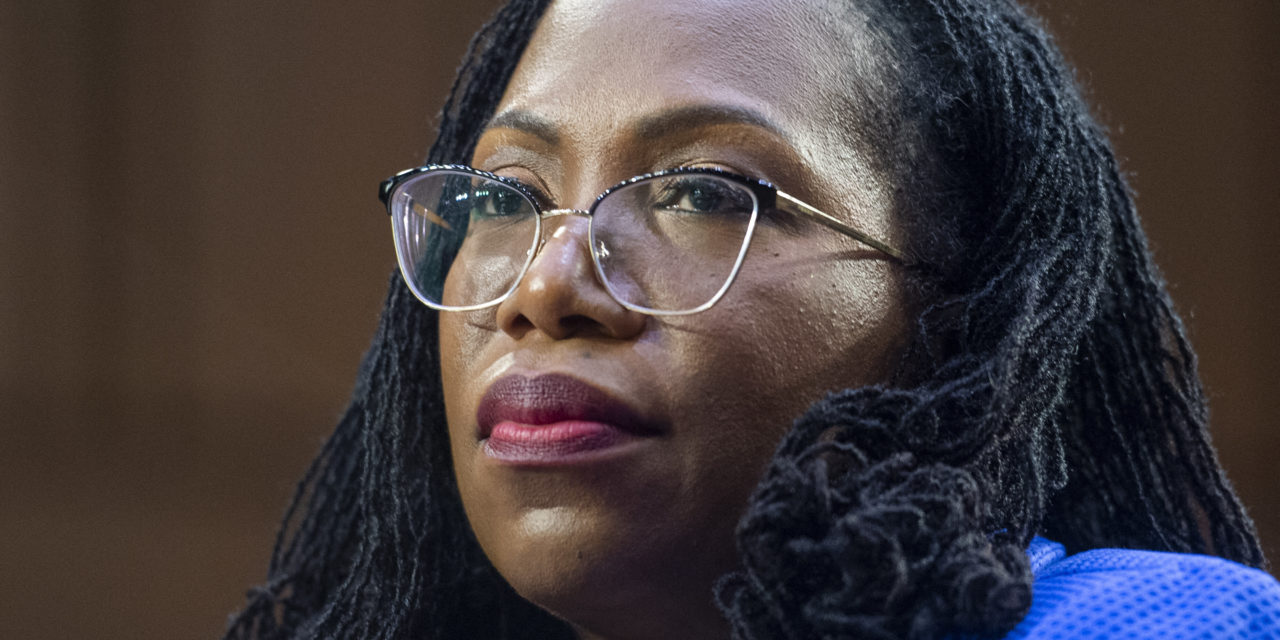A delayed plane flight led to a brief delay in a Senate Judiciary Committee vote on the nomination of Judge Ketanji Brown Jackson to the United States Supreme Court on Monday, April 4. Because Sen. Alex Padilla, D-Calif., a member of the committee, was late arriving in Washington, D.C., from his home state, Judiciary Chairman Richard Durbin, D-Ill., recessed a business meeting of the committee meant for a vote on the nomination until Sen. Padilla arrived.
When Padilla arrived, the committee reconvened and voted 11 to 11 on a motion to report Jackson’s nomination favorably to the full Senate. Chairman Durbin stated he would inform the Senate of the tie vote but took no further action as the committee proceeded to vote on other lower court nominations.
A tie vote ordinarily fails to advance a nomination. Following the committee vote, The Associated Press reported that Senate Majority Leader Charles Schumer, D-N.Y., will call for a vote of the full Senate to pull the nomination out of the committee and advance it to the floor of the Senate.
The unusual recess can be explained by the 11 to 11 split on the committee between Republicans and Democrats. The committee members are divided along party lines in their support for, or opposition to, Judge Jackson’s nomination. Democrats needed Sen. Padilla in the room to achieve at least a tie vote.
How did we get an 11 to 11 split on the committee?
Because the Senate is deadlocked 50-50 between Republicans and Democrats, including a couple Independents who caucus with the Democrats, the makeup of the Judiciary committee reflects it as well, which results in the evenly split committee. That particular Senate power-sharing arrangement was arrived at between Senate Majority Leader Charles Schumer, D-N.Y., and Senate Minority Leader Mitch McConnell, R-Ky., in February 2021.
Even though Senate moderates such as Sen. Joe Manchin, D-W.Va., and Sen. Susan Collins, R-Maine, have announced their intention to vote for Jackson when her nomination reaches the floor of the Senate, all but sealing her confirmation, what happens in the Judiciary committee before then still carries a lot of political significance.
Democrats on the committee wanted to avoid a negative recommendation to the full Senate, which is what would have happened if Durbin had not delayed the vote.
Judge Jackson has a polished resume with two Harvard degrees and many years as a federal judge. However, conservatives see enough in her history to reveal a judge who “subscribes to an expansive and progressive view of the Constitution,” according to Focus on the Family President Jim Daly.
“In other words, she believes it’s acceptable to make the law say whatever you want the law to say,” Daly wrote following Jackson’s testimony to the Judiciary Committee in March. “She has made clear she supports unfettered access to abortion, referring to Roe [v. Wade] as ‘settled law.’ She refused to say when she believes life begins. Previously, Judge Jackson co-wrote an amicus brief on behalf of an abortion-rights group and ruled against a teen pregnancy prevention group. Finally, she even told Senator Blackburn she was unable to define what a “woman” was – because she wasn’t a biologist.”
If Jackson is confirmed to replace the retiring Justice Stephen Breyer, she will be the first female African American justice to serve on the Supreme Court, and the third African American justice overall.
Related:
President Biden Nominates Judge Ketanji Brown Jackson as Next Justice of the Supreme Court
Senator Joe Manchin Announces He Supports Judge Jackson for the Supreme Court
U.S. Senate Schedules Supreme Court Confirmation Hearings for Judge Jackson
Why Judge Jackson’s Non-Answer About Women Was “Transphobic”
Photo from Reuters.






